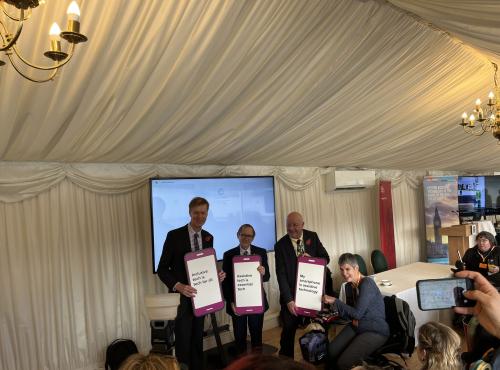Renewing the interest in upskilling the UK’s youth
This election campaign has seen renewed interest in adult education after much neglect, however this week’s ONS figures on NEETs are a sobering reminder that we are still failing too many young people. Head of Education and Skills, Simon Kelleher, reviews what the manifestos say on this issue.
In my evidence to the House of Lords’ Intergenerational Fairness Committee I called for a shift in our approach to education and training, spreading opportunities across one’s lifespan to adapt to the realities of longer working lives and the impact of automation. The recent announcement of several radical policies in this area has therefore been really encouraging, especially given funding reductions for adult learning of 45% since 2009/10.
The initiatives announced across the major parties all have the potential to raise skills levels and provide adults with easier access and purchasing power to gain the skills they need. The Liberal Democrat’s ‘Skills Wallet’ offering adults access to £10,000 worth of funding for training over three 15 year intervals from the age of 25; Labour’s ‘National Education Service’ with its entitlement to level 3 courses and six free years of higher education; and the Conservative’s £3bn fund set up to support skills training.
But while big policy announcements are appealing, the needs of their intended beneficiaries must be kept at the forefront of every stage of the policy process from ideation, through to development and implementation. It was for this reason I was keen to emphasise to the Intergenerational Fairness Committee the importance of the taking a focused look at the groups they were trying to help. As early inequalities compound disadvantage across the lifespan, it is vital that adult education strategies also give serious attention to the outcomes of the compulsory education system.
With news from the Office for National Statistics last week of a slight upward trend in the numbers of 16-24 year-olds Not in Education, Employment or Training (NEET) – 800,000, a persistent 10% of the population – it is worth taking a look at how the parties will seek to help disadvantaged young people to set them up as lifelong learners able to take advantage of opportunities across their adult lives.
All the big three national parties have committed to additional spending on FE and colleges, with the Conservatives previously announcing an additional £400 million for 16-18 spending. Promises to increase spending on the most neglected part of our education system and the one that works with the country’s most disadvantaged learners are welcome moves to the Skills Commission who have been calling for such investment.
However, while these are positive steps they may be insufficient on their own to give disadvantaged young people the foundations they need for the best start to their adult and working lives. As the current Skills Commission inquiry on ‘building a skills ecosystem’ has seen, too many young people are poorly informed about their choices and do not have access to national programmes such as traineeships or apprenticeships.
It is becoming increasingly clear that a renewed national commitment to support those at risk of being left behind will be needed, along with significant thought and action around how services are coordinated and commissioned locally to ensure they are fit for purpose and context.



